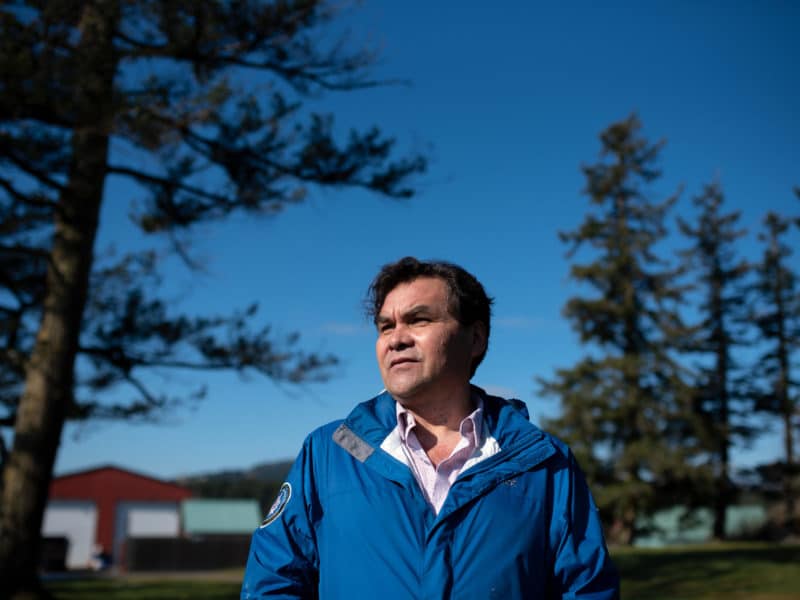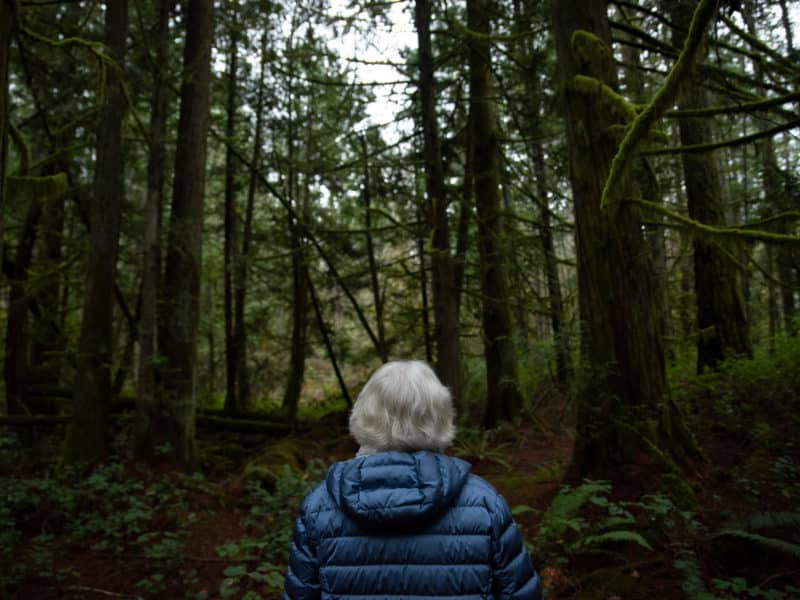
The B.C. provincial election is tomorrow and The Discourse is still working hard to answer some of the questions you’ve posed for the candidates. In the Esquimalt-Metchosin riding, we received many questions that had to do with affordability and cost of living, so we spoke with MLA candidates about that issue to hear about their views and what they think needs to be done to address it.
BC NDP candidate and incumbent Mitzi Dean and BC Green Party candidate and Metchosin councillor Andy MacKinnon spoke with The Discourse. A spokesperson for the BC Liberal Party said candidate RJ Senko was not available due to his busy schedule.
Cost of living, by the numbers
- According to PadMapper, the average rent in Victoria for the month of October was $1,650 for a one-bedroom apartment. The rental website, which creates rent reports monthly by comparing prices across the country, says Victoria is the fourth-most expensive place for rent preceded by Burnaby, Vancouver and Toronto.
- The Living Wage for Families Campaign says in Greater Victoria, living wage is $19.39 per hour. That’s almost $5 per hour more than minimum wage, which is $14.60 per hour and will be going up to $15.20 in June, 2021. The campaign also says investments in child care reduce out-of-pocket costs for families in B.C. by thousands of dollars per year.
- In an update from the Victoria Real Estate Board, the benchmark value for a single-family home in the Victoria core was $879,200 in September. For a condo, the value in September was $510,000.
- In Greater Victoria, the single-family home benchmark value was $793,000 and on the West Shore was $695,500 for September, 2020. For condos, the values were $502,600 and $428,200, respectively.
- According to a statistics report from the Victoria Real Estate Board, all of these prices except for the cost of condominiums in the Victoria core have gone up compared to prices from September, 2019.
What does affordability mean to the candidates?
When asked about what affordable living means to them, Andy MacKinnon says he believes it means people can live in the same community they work in and make enough money to cover the costs of decent housing, food, entertainment and other living expenses.
“For me, the definition is fairly straightforward and at the same time I think, equally as clearly, is not being made for everybody,” MacKinnon says. “For example, it’s rather impossible for me to conceive how a single person making minimum wage could live in Victoria, let’s say, and pay rent and still have money left over for food and a little bit more.”
MacKinnon says he thinks the government needs to do more on both the revenue and expenditure sides of things to make sure people make a livable wage.
The BC Green Party platform pledges to implement a basic income for youth aging out of the foster care system. It also pledges to begin transitioning towards basic income for all. The platform also commits to establishing a fair wages commission to recommend consistent increases in minimum wage.
Mitzi Dean says that, to her, affordable living is about being able to live in a good home and take care of your family by providing good food and safe transportation and still have some money left over for a rainy day or special occasion.
“What I’ve been hearing for many years now across my community is people are working really hard and they’re doing double shifts or extra shifts, passing like ships in the night in apartments,” Dean says. “And they’re still struggling to get by.”
In a recent story by The Discourse, Dean says every worker in B.C. should make a fair wage and points to the minimum wage increases the BC NDP government put in place, including the upcoming increase in June, 2021. She says beginning with the 2018 provincial budget, the NDP government committed $4 million over two years to fund a study on how basic income could work in B.C.
The BC NDP platform also pledges to increase food security. Based on recommendations from the basic income panel – which are expected in December – the party plans to determine the best approach and path forward to reducing poverty.
What do candidates have to say about affordable housing?
On the affordable housing front, Dean says measures need to be in place to make sure there are caps on annual increases in rent. She says the BC NDP is proposing an annual rental subsidy for people making under $80,000 a year.
“We have to recognize that this is an issue that’s developed in my community because of the policies of the BC Liberals when they were in government,” Dean says. “They have let house prices skyrocket and they let apartments become commodities. … People who had money were able to flip condos, making more money [and more] money, and people who are regular people who are building the community – frontline workers – were still not seeing opportunities for good shelter, good places to live and places that are affordable.”
The BC NDP platform pledges to freeze rent to the end of 2021 and cap increases after that to the rate of inflation. It also says the party will reduce construction costs, control strata insurance costs and continue to build affordable homes, supportive housing and housing for Indigenous people.
MacKinnon says he thinks there needs to be enough housing stock, particularly rental properties, to tackle the affordable housing problem. He also says it’s up to provincial and municipal governments to increase the supply of housing and mitigate costs of building as well. He says governments should ensure it is within people’s means to build housing that is up to new step codes and standards because “it’s good for the community, it’s good for the environment. And then, in the longer term, the people with higher-efficiency buildings, new buildings or retrofitted homes will be able to recoup those costs in energy savings.”
MacKinnon also says governments should work with landlords to regulate rent increases and evictions so “it’s a fair playing field” for renters and landlords.
The BC Green Party platform pledges to accelerate investments into affordable, supportive and social housing. It also outlines a plan to introduce a grant for low- and moderate-income earners who are paying more than 30 per cent of their income in rent. The platform also promises to deal with rising strata insurance costs, close loopholes in the speculation tax and expand construction of townhouses and triplexes.
What about affordable child care?
MacKinnon says he thinks the provincial government should play a role in making child care more affordable, and endorses both the NDP’s $10-a-day plan and the Green Party’s pledge to support early childhood education,. He says creating more child-care spaces and giving child care providers access to continuing education so it becomes a stable, regulated profession is important and can help.
“There’s a lot of research out there that suggests that society can benefit from providing the support to allow parents to [work],” MacKinnon says.
The BC Green Party platform pledges to provide up to $500 per month for families with a stay-home parent and at least one child under the age of three. It also outlines a plan to increase funding for child-care programs to add more spaces, offer free child care for working parents with children under the age of three and provide professional development opportunities for early childhood educators.
Dean says affordable child care is important for families and supports the local economy as well. She says the NDP government’s current subsidy system is benefitting families and enabling them to go back to the workforce. Affordable child care is also invaluable for women, she says, noting that having children could impact promotions for women in the workforce.
“By the time you’re looking at retirement, women will be much more likely to be living in poverty because we weren’t able to save up for our pension,” Dean says.
Making sure child-care spaces are in the same community as where people live is important as well, Dean says. She notes that many workers have to commute between home, child-care centres and work, which is an added strain.
The BC NDP platform pledges to bring $10-a-day child care to more families and add 22,000 more spaces. It also outlines a plan to add spaces to local schools and offices and train and keep more early childhood educators.
Dig deeper:
- The full BC NDP platform can be viewed online. It has a search function so you can type in what issue you’re interested in to see what the platform has to say about it.
- The BC Green Party platform is also available online and is broken down into topic-based sections.
- The BC Liberal Party platform addresses affordability through the elimination of the Provincial Sales Tax and establishment of a commission to review all provincial taxes. It also mentions subsidized child care and increased access to child care. The platform also proposes an increase of affordable housing supply. [end]



